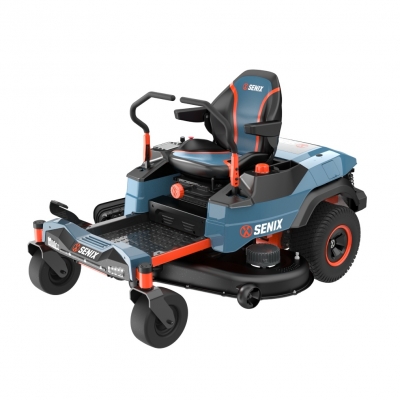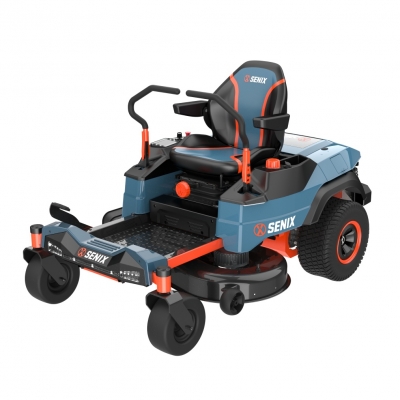Chainsaw Showdown: Electric vs. Gas — What Suits You Best?
What Are You Cutting Today?
Are you pruning branches in your backyard on a quiet Sunday morning or felling forest giants for a big project? Choosing between an electric and a gas chainsaw depends on your needs. This guide compares the two to help you find the best electric chainsaw for homeowners or the ideal gas-powered model for heavy-duty tasks. Let’s dive into the key differences and benefits.
Noise Matters — Especially in Suburbs
Electric chainsaws shine for homeowners and casual users. Here’s why a quiet chainsaw for home use might be your perfect fit:
· Quiet Operation: Tired of noisy mornings disturbing your neighbors? Electric chainsaws are significantly quieter than gas models, minimizing noise pollution and keeping your suburb peaceful.
· Light & User-Friendly: These compact, lightweight tools are a breeze for beginners to handle. Many models reduce arm strain, letting you work longer with comfort—perfect for pruning or small landscaping tasks.
· Eco-Friendly Choice: No exhaust fumes here! Battery-powered chainsaws are environmentally friendly, ideal for eco-conscious users.
· Hassle-Free Start: Forget yanking a pull cord. Simply plug in or charge the battery, and you’re ready to cut—no fuel mixing required.
· Low Maintenance: With no fuel, oil changes, or spark plugs to worry about, electric chainsaws save you time and effort.
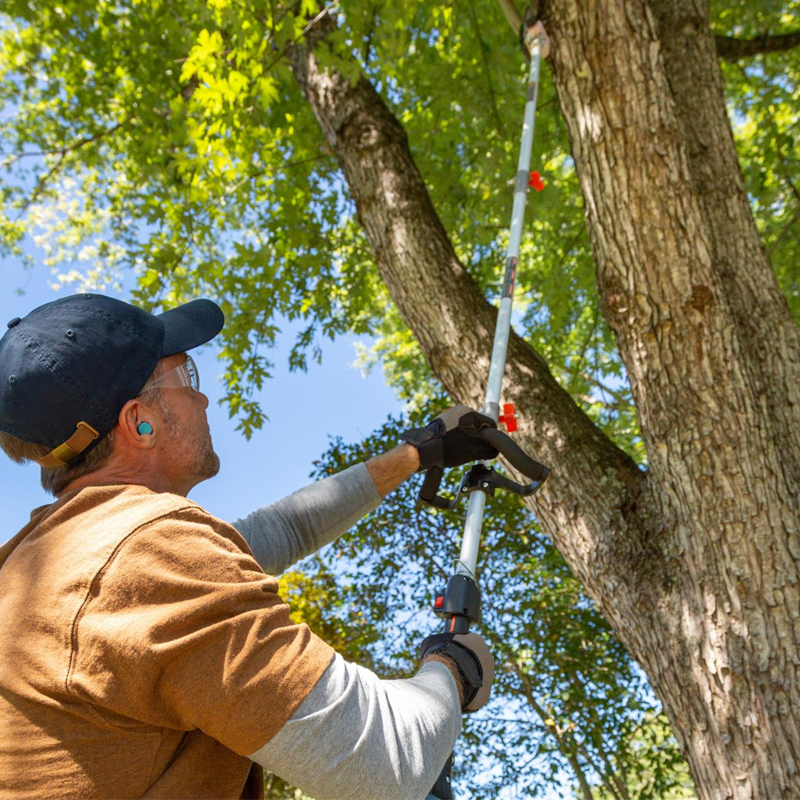
Cordless chainsaw vs. gas chainsaw
Electric models are a top choice for residential tasks due to their ease and efficiency. But what if you need raw power for bigger jobs? Let’s explore the strengths of gas chainsaws.
Tackle the Toughest Jobs
Gas chainsaws are built for those who need serious power. Here’s why a gas-powered chainsaw is the go-to for heavy-duty cutting:
· Unmatched Power: Need to fell a towering oak or slice through thick hardwood? Gas chainsaws deliver raw cutting strength that electric models can’t match, perfect for demanding tasks.
· Longer Runtime: Unlike battery-powered models, gas chainsaws keep going as long as you have fuel, ideal for all-day logging or clearing large areas.
· Rugged Durability: Built to withstand tough conditions, gas-powered chainsaw durability makes them a favorite for professionals working in forests or construction sites.
· Versatile Performance: From large-scale lumbering to storm cleanup, gas chainsaws handle a wide range of heavy-duty jobs with ease.
Gas vs. electric chainsaw comparison
Work Comfortably, Even in Quiet Zones
Picture trimming branches without earplugs or worrying about disturbing the neighborhood. Electric chainsaws offer lower noise and vibration levels, making them ideal for residential areas. You can work longer without fatigue or the risk of hearing damage. Gas chainsaws, while powerful for rugged tasks like forest clearing, roar loudly and vibrate heavily, which can cause fatigue in prolonged use. Ready to weigh power and battery life for your projects?
Power for Your Projects
Need to clear a fallen oak or just tidy up your garden? Battery life is key for cordless electric chainsaws. Depending on the model, you might need to recharge during extended sessions, making them best for light to medium tasks like pruning. For a chainsaw for heavy-duty cutting, gas models deliver the raw power needed to fell large trees or tackle big jobs. Next, let’s explore how to match your tool to your tasks.
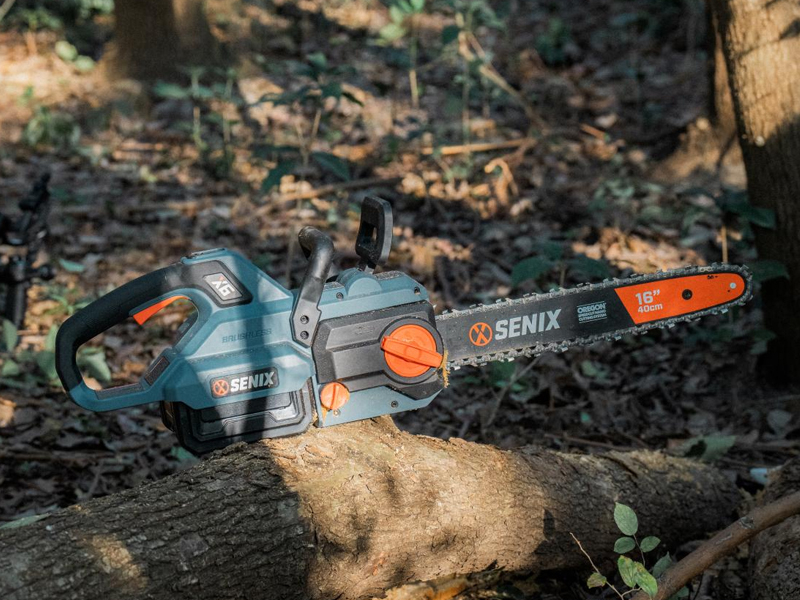
Match Your Tool to Your Task
Your chainsaw should match your work. Here’s how to weigh your options:
Type of Work
If you’re shaping shrubs or trimming small trees, battery-powered chainsaws are lightweight and effective for light-duty tasks. But if you’re felling massive oaks or logging extensively, gas chainsaws deliver unmatched power and durability.
What about the cutting area?
Bar Length
Shorter bars excel at precise cuts for light tasks like pruning. Longer bars are built for heavy-duty work, slicing through large logs or trees with ease.
Comfort matters too, especially for long sessions.
Weight & Comfort
Electric chainsaws are lighter and easier to maneuver, ideal for homeowners or occasional users. Gas models, while powerful, are heavier and can cause fatigue during extended use.
Now that you know what to consider, why do so many homeowners love electric chainsaws?
Don’t Want the Hassle? Go Electric
No one wants to wrestle with a heavy machine or deal with loud engines in their backyard. Electric chainsaws, especially cordless models, offer a sleek, compact design that’s significantly quieter than gas-powered alternatives. They’re a breeze to operate, requiring minimal effort—perfect for homeowners tackling home maintenance or small landscaping projects.
Cordless chainsaw vs. gas? Electric models don’t demand expert skills, making them ideal for DIY enthusiasts handling light to medium tasks. Let’s wrap up with your final choice.
Your Perfect Chainsaw Awaits
Whether you’re pruning roses in your backyard or powering through hardwood in the wilderness, your choice comes down to your tasks, comfort, and maintenance preferences. For beginners or homeowners, the best electric chainsaw for homeowners offers quiet operation, easy handling, and minimal upkeep—perfect for light to medium jobs. Need raw power for felling large trees or clearing vast areas? A gas chainsaw delivers the strength and stamina required.
Weigh your needs and choose wisely. Whether you’re clearing backyard branches or tackling forest timber, SENIX has the right chainsaw to match your ambition. Explore the range now.


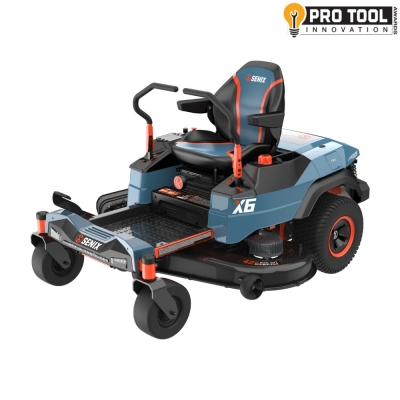
 (5.0)
(5.0)